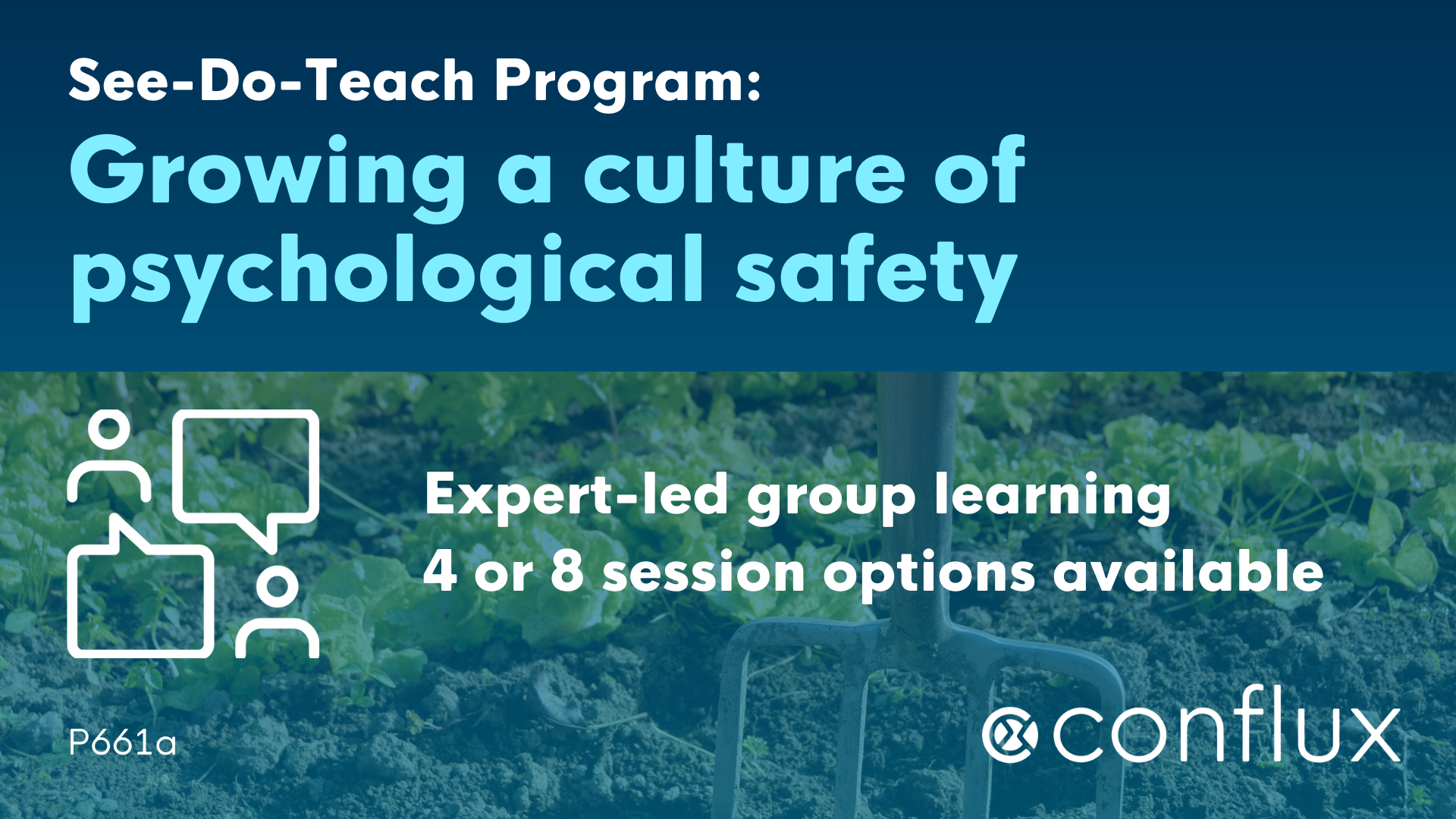
Psychological Safety
Insights from Conflux
Conflux helps organizations to adopt and sustain proven, modern practices for delivering software rapidly and safely.
Delivering software safely doesn’t just mean that teams feel confident to deploy into production in business hours, or that they can quickly rollback to a previous version of an application should a problem occur.
It also means creating an environment where teams can be creative and collaborative, to work together to solve problems and create new products and services to delight their customers. For such an environment to exist and thrive, psychological safety is a key ingredient.
What is psychological safety?
The term ‘psychological safety’ was coined by organizational behaviour scientist and Harvard professor, Dr Amy Edmondson. She described psychological safety as ‘the belief that one will not be punished or humiliated for speaking up with ideas, questions, concerns, or mistakes’.
When people feel psychologically safe in their teams and workplaces they feel comfortable to be open and honest, and to participate and contribute wholeheartedly: they can ask questions when they don’t understand something, admit mistakes when something goes wrong, suggest ideas for improvements, challenge others’ ideas if they disagree, and raise concerns when something doesn’t feel quite right.
Group learning for psychological safety
Psychological safety is an essential ingredient for organizations operating in today’s fast-moving, complex, and volatile world. However, it is not something that just exists by a ‘happy accident’. Organizations must intentionally create an environment in which psychological safety can thrive, and that takes time and effort. Conflux can help your organization to build and grow its psychological safety awareness and capabilities through our ‘See-Do-Teach’ approach to group learning.







